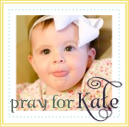Faddish baby names don't retain their appeal for long, a new study suggests. But names that take their time becoming popular seem most apt to stick around.
The findings, from research published Tuesday May 5th ,in a top scientific journal, offer insight into how we become suspicious of sudden fads and prefer the tried and true, said the study's lead author, Jonah Berger, assistant professor of marketing at the Wharton School of the University of Pennsylvania.
"Things that catch on more quickly are more likely to be seen as fads and decline more quickly," Berger said. "We can show that things that catch on quickly are less successful over all."
That dynamic could be at play in everything from music and fashion to cars and hair styles, Berger said.
In the study, Berger and his colleagues examined the popularity of 2,570 names given children in France between 1900 and 2004. They also looked at names that were given to at least 1,850 babies in the United States in any year in that period, as long as the names remained fairly common for at least six years.
The researchers found that many names grew in popularity over decades and then dipped. The name "Charlene," for example, was most popular from about 1930 to 1970, before dwindling in popularity and becoming fairly uncommon by 2000.
The names "Kristi" and "Tricia," by contrast, zoomed up in popularity in the early 1970s but lost much of their appeal by 1985.
In other words, they were fads that fizzled. "Faster adoption speed means faster death," Berger said.
The name "Shaniqua" also demonstrates the fad phenomenon. BabyNameWizard.com, a Web site that tracks baby names, reveals that the name zoomed up in popularity in the 1980s and 1990s but vanished by 2000.
And what about names that have been around seemingly forever? "They probably didn't catch on very quickly," Berger speculated. "They probably caught on more slowly and deliberately" and, therefore, had staying power.
The findings can help marketers figure out how much buzz their products need to be successful, Berger said. "As marketers, we might want to manage the process, encourage a trickle rather than a gushing thing right at the beginning." Results of the study appear online Tuesday in the Proceedings of the National Academy of Sciences.
George Belch, chairman of San Diego State University's marketing department, said there may indeed be some parallels between how people choose baby names and how they choose products.
"It demonstrates the fact that when you have something that becomes very popular and widespread, that's good in the short term," he said. "But as something becomes more popular, that starts to end up being more of a negative cue.
"Human nature is such that people really want to be unique and different," Belch said. "And once they start thinking that they're following others, the things that were once making them feel unique or different start to work against them."
So think about this next time that you want to name your child a trendy fad name, because chances are in 20 years it will be a fizzle NOT a fad!
Crossroads
10 years ago







No comments:
Post a Comment